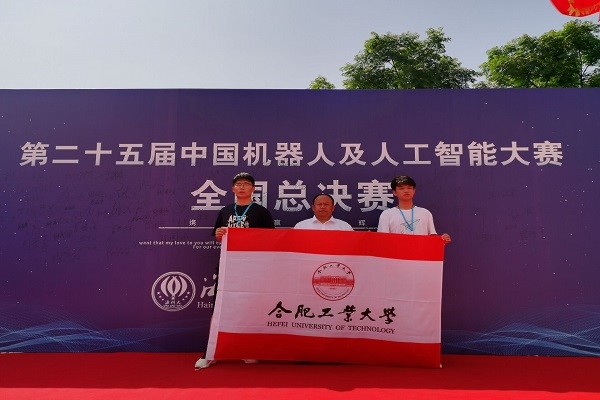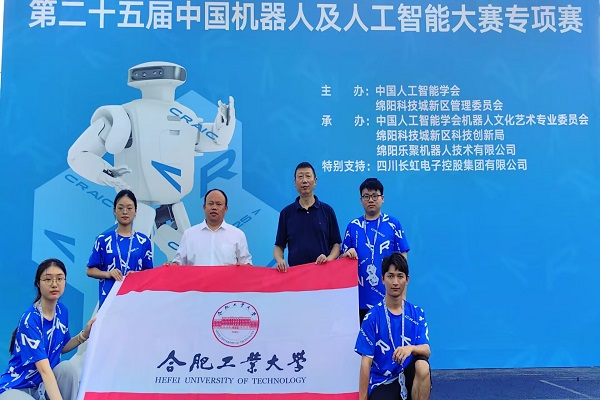Recently, the finals of the 25th China Robot and Artificial Intelligence Competition and its special competitions were held in Haikou and Mianyang. More than 3,000 teams from over 500 schools nationwide, including Tsinghua University, Harbin Institute of Technology, Zhejiang University, University of Science and Technology of China, and Shanghai Jiaotong University, advanced to the national finals. Our school's team achieved excellent results in the finals, winning six first prizes, seven second prizes, and four third prizes. The competition was widely reported by major media such as CCTV.
The China Robot and Artificial Intelligence Competition is a long-standing and widely influential national academic competition. The competition has trained a large number of "hands-on", "innovative", and "collaborative" compound talents for our country. The competition has been included in the national ranking of academic competitions published by the China Higher Education Association and the National Analysis Report of College Student Competitions. This competition has set up four categories: innovation, competition, challenge, and application, with 28 types of competition projects. The competition is divided into three stages: school selection, provincial selection, and national finals. This year, provincial competition areas were set up in 29 provinces, cities, and autonomous regions, with more than 8,700 teams from over 700 universities starting from the provincial competition. The competition aims to cultivate students' ability to solve practical problems, integrate theory and practice, foster teamwork, and achieve a combination of multiple disciplines and fields. It is of great significance to cultivate high-quality top innovative talents.
Our school started to organize this competition in March this year. More than 70 teams from 10 units including the School of Computer and Information (Artificial Intelligence), the School of Electrical and Automation Engineering, the School of Mechanical Engineering, the School of Automotive and Traffic Engineering, the School of Civil and Hydraulic Engineering, the School of Management, and the School of Software participated in the school selection. 34 teams were recommended to participate in the Anhui competition area, and finally 20 teams advanced to the national finals.


 TOP
TOP